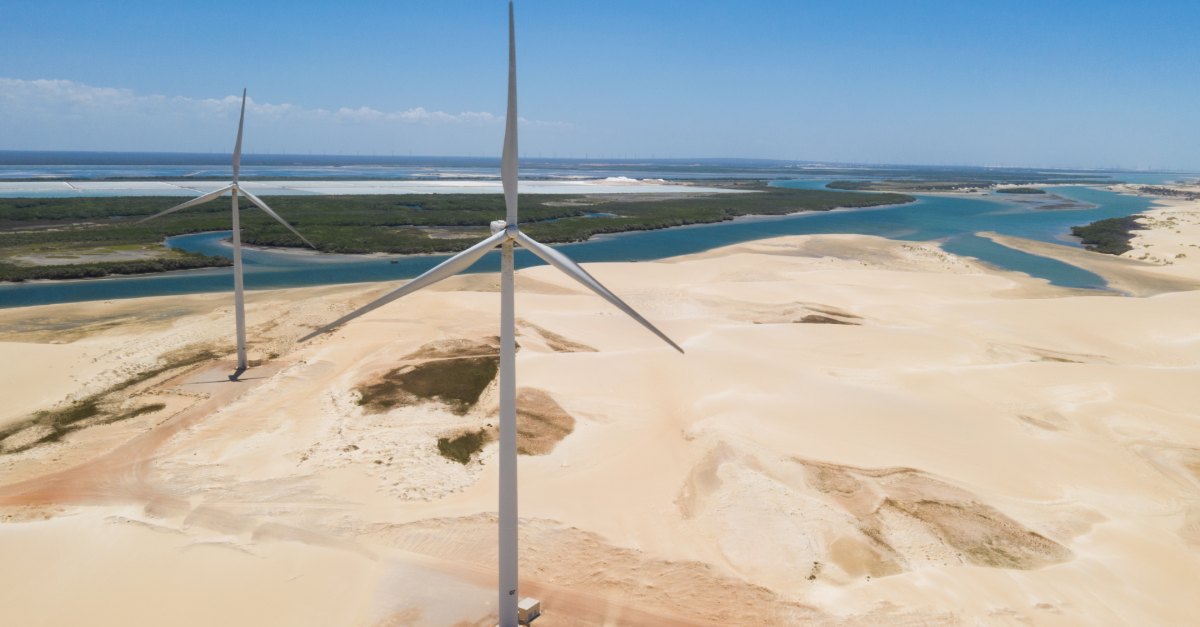
IRENA at Latin America and Caribbean Climate Week 2019

Renewable energy is a key solution and the most practical action tool to address climate change. With rapid uptake of renewables, CO2 emissions would be about 70 per cent lower than today, analysis by the International Renewable Energy (IRENA) shows. Beyond achieving climate stability, the shift to renewables offers significant long-term socio-economic advantages and is a cornerstone of sustainable development. Read more why accelerating the uptake of renewable energy is key to a climate-safe future.
This central message by IRENA was brought to the Latin America and Caribbean Climate Week (LACCW) that took place from 19-23 August in Salvador, Brazil. Regional Climate Weeks serve as critical stepping stones to the UN Secretary General’s Climate Summit in September 2019 in New York and gathers diverse stakeholders in the public and private sectors around a common goal of addressing climate change. Regional Climate Weeks comprise a series of events that provide space for grassroots exchange of knowledge and best practices across the region on: the implementation of Nationally Determined Contributions (NDCs) under the Paris Agreement, Sustainable Development Goals (SGDs) and global climate action.
During LACCW, IRENA coordinated the Energy Transition breakout session during the Regional NDC Dialogue on Monday, 19 August and the Energy Transition Capacity Building Session on Wednesday, 21 August. Additionally, IRENA organised side events at the venue's 'Action Hub' throughout the week.
Regional NDC Dialogue Breakout Sessions - 19 August 2019
Concrete Climate Action on the Ground: Energy Transition (Caribbean)
16:00 - 17:30The Caribbean region is home to islands that are among the most severely affected by natural disasters induced by climate change. Several countries are heavily reliant on fossil fuels for their energy needs, making them vulnerable to external factors such as oil price fluctuations. Caribbean SIDS have identified energy system resilience and renewable energy deployment as key goals in their energy transition. In this context, the Member States of the Caribbean Community (CARICOM) have set a regional target of 47 per cent renewable energy contribution to total electricity generation by 2027. This commitment is also visible in the Caribbean countries’ NDCs: 92 per cent mention renewable energy while 85 per cent include renewable energy targets.
The Caribbean has huge renewable energy potential but requires significant investing in its development and establishment of an efficient infrastructure. Estimated investment needed for energy targets in the current NDCs exceeds USD 8 billion. With sufficient investment, the Caribbean will accelerate the energy transition through mitigation and adaptation strategies with greater utilization and exploitation of abundant indigenous resources.
This session explored options where action in the context of the energy transition can fulfill multiple objectives of development and climate change.
Concrete Climate Action on the Ground: Energy Transition (Latin America)
16:00 - 17:30Latin America hosts some of the most dynamic renewable energy markets in the world, with more than a quarter of primary energy coming from renewables, which is twice the global average. Given large hydropower and risks associated with climate change, Latin America requires specific low-carbon solutions. Rapid cost reductions of solar and wind, maturing technologies, the digital revolution and further policy reforms offer an unprecedented opportunity for the region to move towards low-carbon energy development. Latin American countries have demonstrated awareness of this momentum: 80 per cent mention renewable energy in their NDCs while 75 per cent include renewable targets in their NDCs. Total investment needed for these renewable energy targets exceeds USD 140 billion.
Realising this ambition is within reach, but only when combined with energy efficiency, which can significantly reduce energy demand and the need for expanding renewable energy capacity. Energy efficiency, especially regarding grid transmission, building design, and urban planning, is particularly important in Latin America’s rapidly growing cities where energy supply struggles to keep up with rising demand. Further investment, particularly from the private sector, will enable the region to fulfill its renewable energy potential, while bringing a range of benefits, including social inclusion.
This session will explore options where action in the context of the energy transition can fulfill multiple objectives of development and climate change.
Energy transition capacity building session - 21 August 2019
16:00 - 18:30Coordinated by IRENA with support from WBCSD/CEBDS, LEDS GP, GlobalABC, ICC
Deep Decarbonisation of the Energy System in Latin America and the Caribbean
16:15 - 17:30A deep decarbonisation of the energy system is necessary to mitigate and adapt to climate change impacts. Renewable energy, coupled with ramped-up energy efficiency, could deliver significant CO2 emission reductions. Achieving the energy transformation is not simply a replacement of fuels; nor it is only about increasing the renewable capacity. System design and operation must be moulded to accommodate new technologies and policies that favour renewable energy and energy efficiency. Furthermore, policies have to adapt to the dynamic nature of the emerging system and embrace the multitude of players in it to ensure a just and fair transition.
This session showcased replicable examples of renewable energy and energy efficiency solutions to accelerate the energy transition.
Financing the Energy Transition in Latin America and the Caribbean
17:30 - 18:30Scaling up renewables in line with their potential to meet energy security and climate objectives requires more significant investment than currently planned. Further, energy efficiency solutions often amortize within a few years, but high upfront costs constitute a significant barrier. Although public finance plays an important part to further renewable energy, it is unlikely to increase above its current average of 15%. Thus, private finance will need to supply the lion’s share of new investment in energy transition.
There are constraints that prevent the private sector from accessing many of the existing investment opportunities, with challenges such as the lack of a project pipeline, limited access to affordable capital, and limited risk mitigation instruments, among others. In spite of these constraints, more and more non-energy companies are voluntarily, and actively, procuring or investing in renewable energy, increasingly through corporate renewable Power Purchase Agreements (PPAs). While roughly one in five corporations has committed to renewable electricity targets, the opportunity exists to strengthen these targets and implement them throughout the commercial and industrial sector. Furthermore, thanks to the increasing success of labels and quick return on investments, energy efficiency considerations are becoming more prevalent.
This session focused on key action areas that can help overcome barriers and create an enabling environment that can stimulate investment, encourage corporate sourcing and make Latin America and the Caribbean leading global forces in harnessing renewable energy and energy efficiency potential.
The Relevance of Long-term Energy Scenarios to Climate Policy Making and NDC Target Setting in Latin America & the Caribbean (side event) - 22 August 2019
13.30 - 14.25The Paris Agreement explicitly calls on countries to deliver long-term strategies for decarbonisation to the international community, calling on “all Parties . . . to formulate and communicate long-term low greenhouse gas emission development strategies.” Considering that the energy sector is the main – or among the main – emitters of greenhouse gases in many countries, long-term energy scenarios should play a key role in assessing and quantifying the potential of emission reduction strategies and compliance with nationally determined contributions (NDCs).
In Latin American & the Caribbean, as in many parts of the world, the development of decarbonisation strategies is the jurisdiction of environmental ministries/institutions, while the development of long-term energy scenarios (LTES) is mainly a task for energy ministries/agencies – these processes are not necessarily well connected. Climate policy and NDC setting are now one of the main drivers for the energy transition and the uptake in the use of LTES.
This side event discussed approaches to bridge long-term energy planning and climate policymaking communities. Experiences and good practices being made to include LTES into the climate policymaking process were presented. The session included expert presentations and a panel discussion with government practitioners in energy scenario and climate policy-making, as well as organisations supporting countries with NDCs.